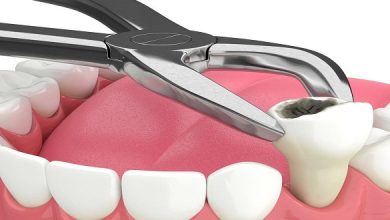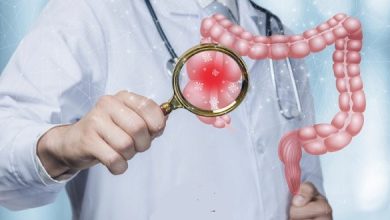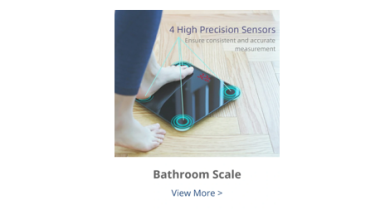Post-Infectious IBS: Unraveling the Link Between Infections and Digestive Distress

Irritable Bowel Syndrome (IBS) is a chronic gastrointestinal disorder that affects millions of people worldwide, causing symptoms such as abdominal pain, bloating, and changes in bowel habits. While the exact cause of IBS remains elusive, one intriguing subset of this condition is known as Post-Infectious IBS (PI-IBS). PI-IBS develops in some individuals following a gastrointestinal infection, shedding light on the intricate relationship between infections and digestive health. In this comprehensive exploration, we will delve into the fascinating world of Post-Infectious IBS, examining its causes, symptoms, diagnosis, and potential treatment options.
The Genesis of Post-Infectious IBS
Post-Infectious IBS is a unique and relatively well-defined subset of IBS. It arises when an individual experiences a gastrointestinal infection, typically due to bacteria or viruses, and subsequently develops IBS-like symptoms that persist long after the infection has cleared. This connection between infection and chronic digestive distress has raised numerous questions and prompted extensive research to unravel the underlying mechanisms.
Infection as a Precursor
Infections that can potentially trigger PI-IBS often include:
- Bacterial Infections: Common culprits include Salmonella, Campylobacter, and Escherichia coli (E. coli). These infections are usually contracted through contaminated food or water.
- Viral Infections: Some viral infections, such as Norovirus, can also lead to PI-IBS. Norovirus is highly contagious and is often associated with outbreaks in crowded settings.
- Parasitic Infections: Parasites like Giardia lamblia and Entamoeba histolytica can cause prolonged gastrointestinal symptoms and potentially lead to PI-IBS.
The Transition from Acute to Chronic
The transition from an acute gastrointestinal infection to PI-IBS is not fully understood but involves complex interactions between the immune system, gut microbiota, and the nervous system. It is theorized that during the acute infection phase, the immune response to the pathogen may lead to persistent changes in the gut, including alterations in gut motility, increased sensitivity to pain (visceral hypersensitivity), and inflammation. These changes can then result in the chronic symptoms characteristic of IBS.
Symptoms of Post-Infectious IBS
PI-IBS symptoms are similar to those of IBS, including:
- Abdominal Pain: Often described as crampy or colicky, this pain is a hallmark of PI-IBS.
- Bloating: Many individuals with PI-IBS experience abdominal bloating, which can be uncomfortable and distressing.
- Altered Bowel Habits: This can manifest as diarrhea, constipation, or an alternating pattern of both.
- Urgency: A sudden and intense need to have a bowel movement is common.
- Mucus in Stools: Some people with PI-IBS notice the presence of mucus in their stools.
- Fatigue and Discomfort: Living with chronic digestive symptoms can lead to fatigue and a reduced quality of life.
These symptoms often resemble those experienced during the initial gastrointestinal infection, but they persist well beyond the infection’s resolution.
Diagnosis of Post-Infectious IBS
Diagnosing PI-IBS can be challenging, primarily because there are no specific tests or markers that definitively confirm the condition. Instead, the diagnosis is typically made based on a thorough medical history, including a documented history of a preceding gastrointestinal infection, and by ruling out other potential causes of symptoms. It’s essential to exclude other conditions, such as inflammatory bowel disease (IBD) or celiac disease, which can have similar symptoms.
Treatment and Management
Managing PI-IBS involves a combination of dietary and lifestyle modifications, medication, and psychological support. Here are some key strategies for individuals dealing with this condition:
- Dietary Modifications:
- Low-FODMAP Diet: As with other forms of IBS, some individuals with PI-IBS may benefit from a low-FODMAP diet, which restricts fermentable carbohydrates that can trigger symptoms.
- Food Diary: Keeping a detailed food diary can help identify specific trigger foods.
- Hydration: Staying well-hydrated is essential, especially if diarrhea is a predominant symptom.
- Lifestyle Changes:
- Stress Management: Techniques such as meditation, yoga, or cognitive-behavioral therapy (CBT) can help reduce stress, which can exacerbate PI-IBS symptoms.
- Regular Exercise: Physical activity can aid in regulating bowel movements and improving overall well-being.
- Adequate Sleep: Ensuring you get enough rest is crucial for digestive health.
- Medications:
- Antispasmodic Medications: These drugs can help alleviate abdominal cramps and pain.
- Laxatives or Anti-Diarrheal Medications: Depending on the predominant symptom, medications may be prescribed to regulate bowel movements.
- Psychological Support:
- Counseling: Discussing the emotional impact of PI-IBS with a therapist can be beneficial for some individuals.
- Support Groups: Joining a support group can provide a sense of community and shared experiences.
The Importance of Early Intervention
Early intervention and management of PI-IBS are crucial. While the condition can be challenging to treat, particularly because of its complex origins, taking steps to address symptoms promptly can significantly improve an individual’s quality of life. It’s essential for healthcare providers to recognize the potential connection between previous gastrointestinal infections and the development of PI-IBS, as this awareness can lead to more accurate diagnoses and tailored treatment plans.
Research and Future Directions
Understanding the pathophysiology of PI-IBS remains an active area of research. Scientists are investigating various aspects, including the role of the gut microbiota, the immune response, and genetic factors. As our knowledge of PI-IBS deepens, there is hope for the development of targeted therapies that address the specific mechanisms underlying this condition.
Conclusion
Post-Infectious IBS serves as a compelling example of the intricate interplay between infections and digestive health. For individuals who develop PI-IBS, the journey from a simple gastrointestinal infection to chronic digestive distress can be challenging. However, with proper diagnosis, symptom management, and ongoing research, there is hope for improved treatments and better outcomes. If you suspect you may have PI-IBS, it’s essential to seek medical guidance and explore strategies for managing your symptoms effectively.





